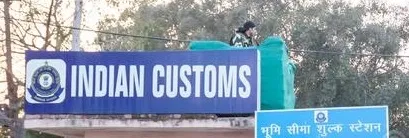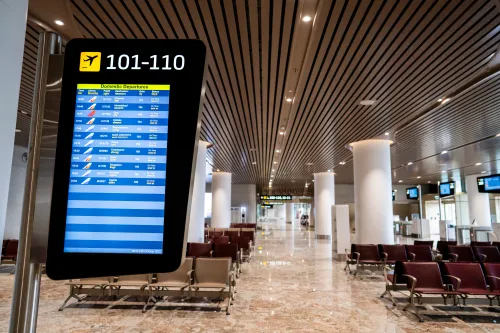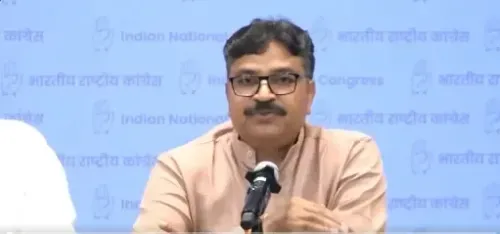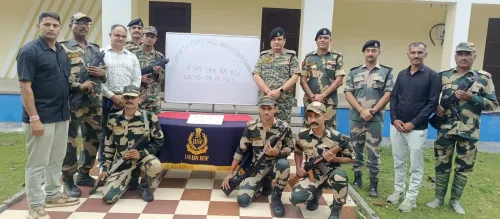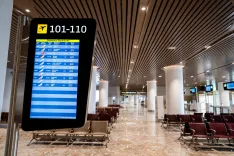Is a Judicial Officer Set to Become an Allahabad HC Judge?

Synopsis
Key Takeaways
- The Supreme Court Collegium has recommended Vinai Kumar Dwivedi for the Allahabad High Court.
- The process involves multiple legal authorities and stringent protocols.
- Consultations with senior judges are crucial for finalizing recommendations.
- The appointment is formalized once the President signs the warrant.
- This highlights the transparency and accountability in judicial appointments.
New Delhi, Oct 7 (NationPress) The Supreme Court Collegium, led by Chief Justice of India (CJI) B.R. Gavai, has put forward a recommendation for the elevation of a judicial officer to the position of a Judge at the Allahabad High Court.
The suggestion for appointing Vinai Kumar Dwivedi, a judicial officer, originated from the Chief Justice of the Allahabad High Court, following discussions with his two senior-most peers.
In a statement released on the apex court's website, it was noted that, "The Supreme Court Collegium, during its meeting on October 6, 2025, endorsed the proposal for appointing Shri Vinai Kumar Dwivedi as a Judge of the High Court of Judicature at Allahabad."
The memorandum of procedure (MoP) that regulates the appointment of High Court judges stipulates that the initiation of any appointment proposal must come from the Chief Justice.
If the Chief Minister intends to recommend a name, it must be forwarded to the Chief Justice for review. Subsequently, the Governor, acting on the Chief Minister's advice, must relay his recommendation along with all relevant documents to the Union Minister of Law & Justice within six weeks of receiving the proposal from the High Court's Chief Justice.
The Central Government then evaluates the proposal along with additional background information before submitting it to the CJI, who will consult with the two senior-most Supreme Court judges before finalizing his recommendation.
After these consultations, the CJI will send his recommendation to the Union Minister of Law & Justice within four weeks. According to the MoP, once the President signs the appointment warrant, the Secretary of the Department of Justice will inform the Chief Justice, and a copy will also be sent to the Chief Minister, who will then announce the appointment and publish the necessary notification in the Gazette of India.

